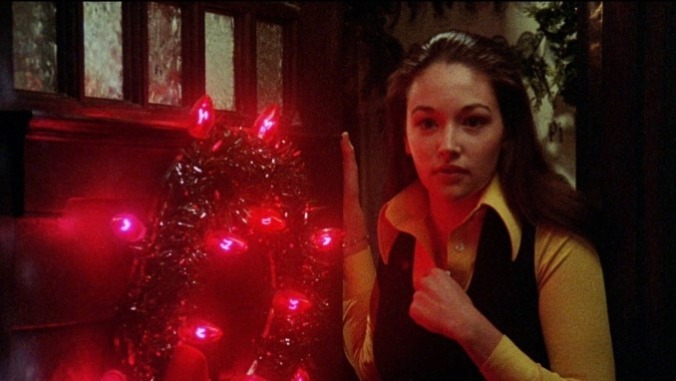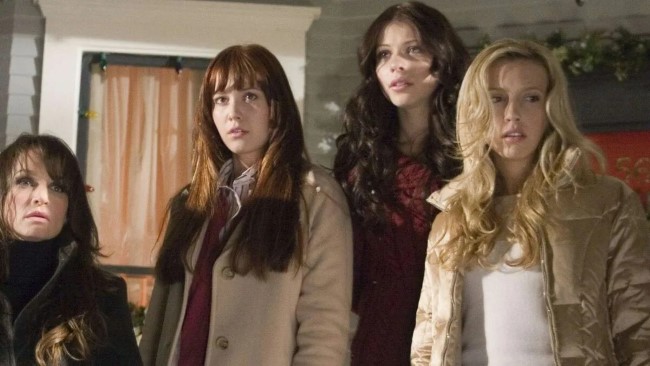Black Christmas And Three Generations of Holiday Slasher Horror

Before the late director Bob Clark gifted us A Christmas Story (the definitive Christmas movie — FIGHT ME!) in 1983, he previously got in the holiday spirit with his foundational 1974 holiday horror film Black Christmas. Shot on a minuscule $686,000 budget in Canada (where the American-born Clark shot many of his films), the film is just one of several ‘70s chillers that adapted the “babysitter and the man upstairs” urban legend, where a teenage babysitter receives frightening phone calls from someone who is revealed to be — wait for it — inside the house!
In Black Christmas, a sorority house full of girls (including Romeo & Juliet star Olivia Hussey, a pre-SCTV Andrea Martin, and a boozy, cheeky Margot Kidder) are the ones receiving obscene, threatening calls from some “moaner” who calls himself Billy. During a Christmas party, the moaner slides into the house one night and makes himself at home in the attic, occasionally coming out to pick off the girls.
Considered one of the first slasher films, Black Christmas made $4 million worldwide and gained an obvious cult following. So of course, it’s subsequently been remade.
Actually, two Black Christmas remakes have been released over the years. The first one, which dropped in 2006, is disappointing as hell. This gross, skeevy revamp follows the general premise: Pretty young sorority girls (including Lacey Chabert, Michelle Trachtenberg, and Mary Elizabeth Winstead) get wiped out one by one by an attic-dwelling serial killer on Christmas Eve. (In this version, Billy returns to his childhood home after escaping from a mental institution.)
This Christmas is definitely one loose reimagining, giving fewer props and shout-outs to the original (Andrea Martin does appear as the resident housemother) and ripping off other slasher films receiving their own remakes in the same era, like Halloween and Friday the 13th. This time around, the killer is characterized more as a living boogeyman, a la Michael Myers and Jason Voorhees. We also get a backstory, courtesy of flashbacks which include Billy watching his father killed by his mother, who would eventually lock the kid up in their attic. It gets even worse for the poor psycho, who gets raped by his mom and receives a new sister/daughter. It’s almost like the movie is more concerned with knocking Norman Bates off his throne as the most fucked-up mama’s boy in horror cinema.

Relying more on blood-soaked, macabre theatrics, the 2006 Black Christmas feels more like an elongated Tales from the Crypt episode. Fresh from helming the 2003 remake of the 1971, rat-crawling thriller Willard, director Glen Morgan got together with his old X-Files/Final Destination writing partner James Wong to make Black Christmas more like a pulpy, Val Lewton-style thriller, complete with low-angle shots full of contrasting light and shadows. And yet, there are also scenes so sloppily edited, you’d be hard-pressed to know what the hell was going on.
-

-

-

-

-

-

-

-

-

-

-

-

-

-

-

-

-

-

-

-

-

-

-

-

-

-

-

-

-

-

-

-

-

-

-

-

-

-

-

-









































